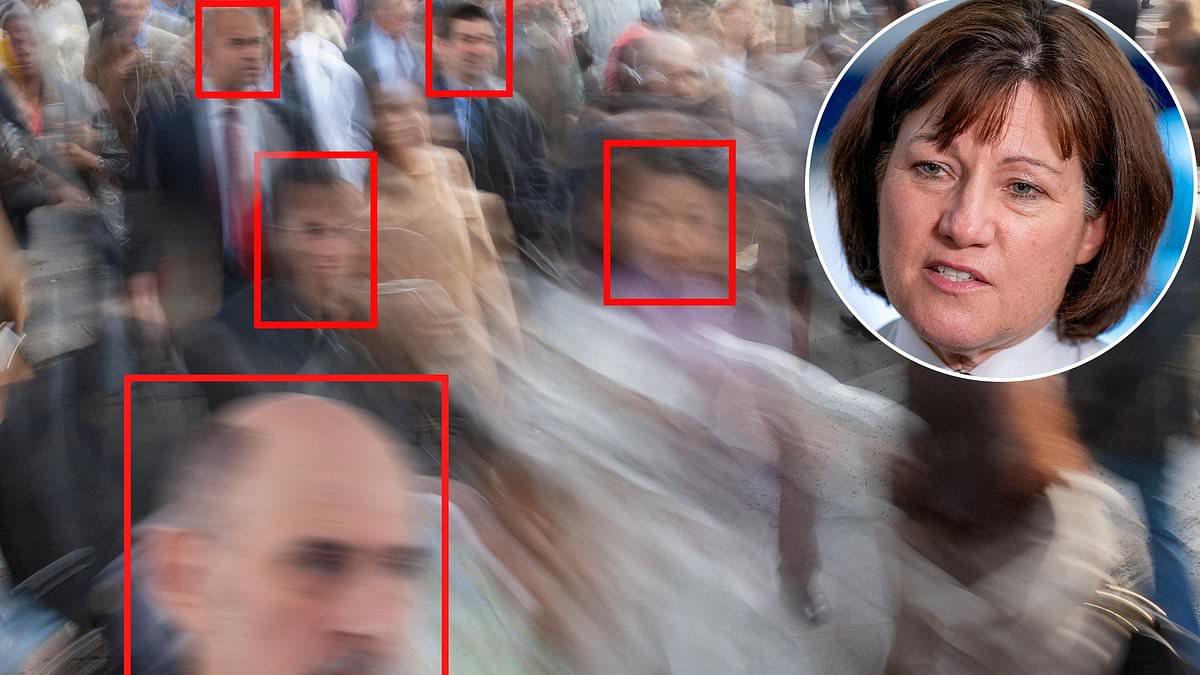Police Scotland must ditch plans to introduce live facial recognition, human rights groups have urged.
Chief Constable Jo Farrell has said the force ‘will move ahead’ with work to ‘develop a live facial recognition (LFR) capability’.
But the decision has been condemned by anti-racism, equality, and human rights groups who say it is an ‘alarming step towards a Scottish surveillance state’.
In a joint statement, 14 organisations called for Police Scotland to scrap the plans due to concern over their legality and their possible ‘discriminatory impact’, and a lack of parliamentary consideration.
It said: ‘Live facial recognition has faced criticism from rights and equalities groups across the globe due to its impact on privacy, freedom of expression and its well-documented racial and gender biases.
‘International research, as well as testing of the Metropolitan Police and South Wales Police’s facial recognition algorithm, has identified disproportionately higher inaccuracy rates when attempting to identify people of colour and women.’
It added that the use of the technology in England and Wales has been subject to legal challenges.
The Court of Appeal ruled in 2019 that South Wales Police’s use of facial recognition technology was unlawful and violated human rights, while the Metropolitan Police are facing legal action after an anti-knife crime activist, Shaun Thompson, was wrongly flagged as a criminal by the London force’s technology.
And, in 2020, Holyrood’s sub-committee on policing held an inquiry into the use of the technology north of the Border, finding that there was ‘no justifiable basis’ for the use of facial recognition software.
The joint statement added: ‘Police use of live facial recognition is not enabled by any specific piece of legislation and has not been authorised by parliament.
‘Police forces have been left to write their own policies about how and where it can be used.’
Earlier this month, the LFR plan suffered a blow after the UK equalities regulator said its usage could flout European human rights laws.
The Equality and Human Rights Commission (EHRC) said the policy of the Metropolitan Police on deploying the technology was ‘unlawful’ and ‘intrusive’.
It said forces using the technology need to ‘ensure they deploy it in ways which are consistent with the law and with human rights’.
Liz Thomson, Scotland programme director at Amnesty International, said Police Scotland’s claim to be a ‘rights-based force’ is at odds with plans to introduce a ‘tool of mass surveillance’.
‘Around the world, facial recognition technologies are being used to stifle protest and harass minority communities,’ she said.
‘These systems violate the right to privacy, threaten the rights to freedom of peaceful assembly and expression, and to equality and non-discrimination.
‘In recent months, the Scottish Police Authority and Police Scotland hosted the Metropolitan Police in Edinburgh to reassure Scottish civil society that LFR could be used without detrimental human rights impact.
‘Yet just last week the EHRC publicly warned that the Met’s policy on LFR use is unlawful.
‘It’s time Police Scotland started listening.
‘If the force continues with its own plans for LFR it will be dragging Scotland backwards on human rights.’
Madeleine Stone, senior advocacy officer at Big Brother Watch, said it was ‘deeply disappointing’ that Police Scotland are pursuing using the technology.
She said: ‘Live facial recognition technology has no place in a democratic society and poses a grave risk to the rights and freedoms of the Scottish public.
“There is no specific legislation governing police use of this technology, meaning that police forces across the UK are already deploying this technology absent of meaningful accountability or oversight.
‘Police Scotland should instead take this opportunity to lead by example and pursue a rights-respecting approach to policing, rather than repeating the mistakes of English and Welsh forces who have invested taxpayers’ money [on] this Orwellian technology.’
Asked for comment, Police Scotland reiterated remarks made by a senior officer at a recent meeting of the Scottish Police Authority’s public board.
Deputy Chief Constable Jane Connors said the force ‘totally understands that people need assurances and reassurances about how we would use LFR’.
She said: ‘We are passionate about meeting the positive duty that is on us to use technology for law enforcement.’
